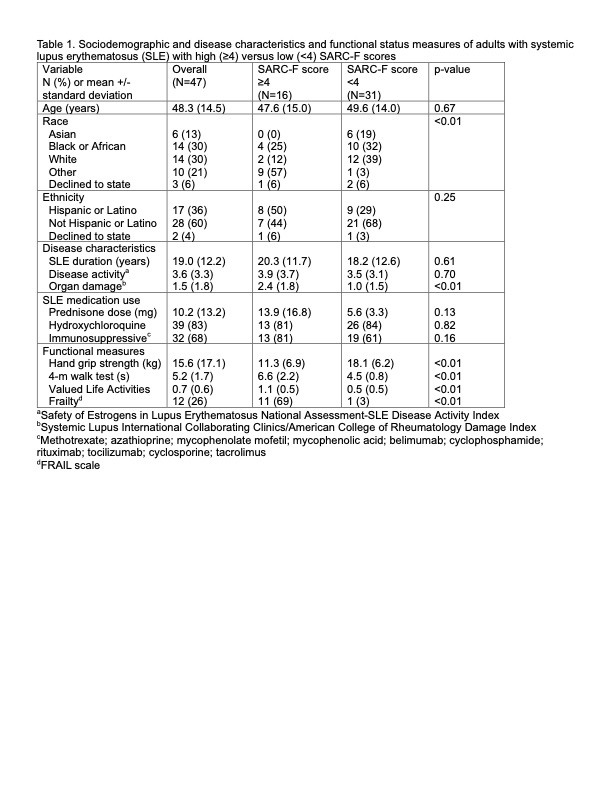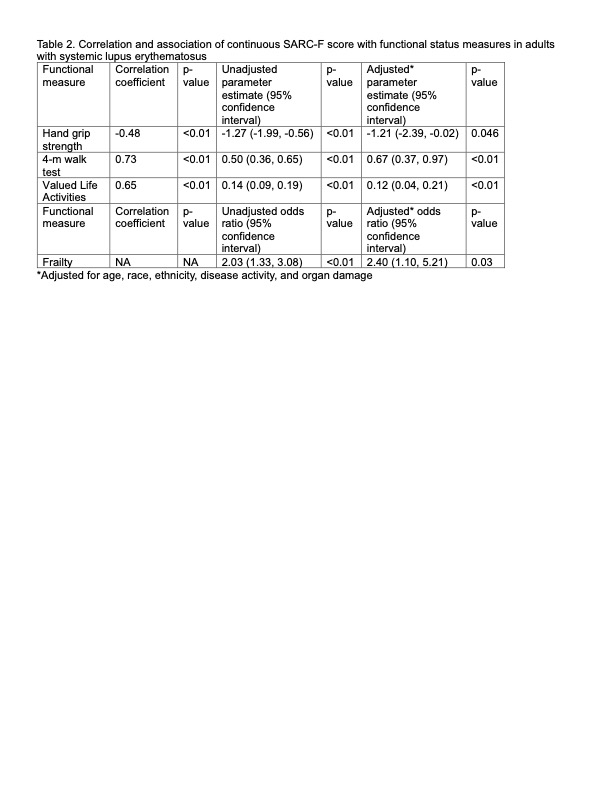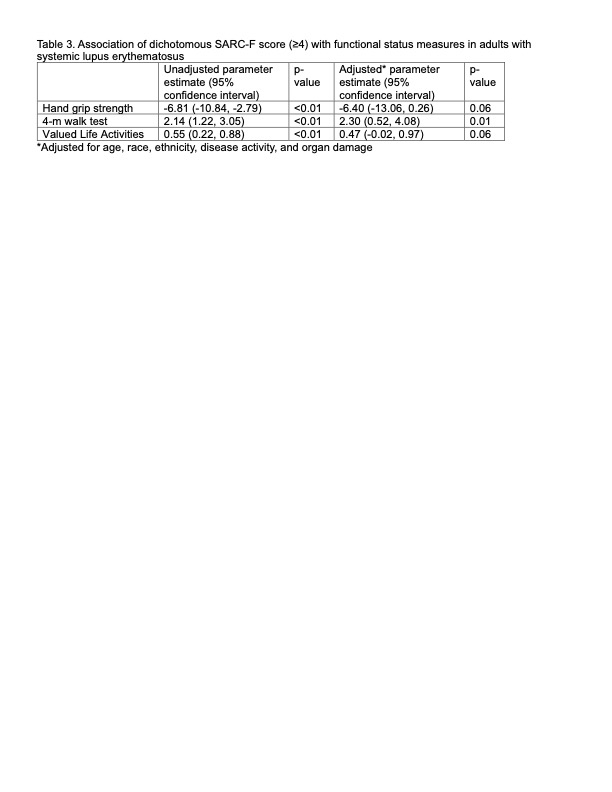Session Information
Date: Sunday, November 12, 2023
Title: (0325–0344) Patient Outcomes, Preferences, & Attitudes Poster I
Session Type: Poster Session A
Session Time: 9:00AM-11:00AM
Background/Purpose: Sarcopenia, i.e., loss of skeletal muscle mass and strength, has been associated with multiple adverse health outcomes, including mortality. Although limited data suggest that sarcopenia is more prevalent among adults with systemic lupus erythematosus (SLE) across the lifespan relative to comparators, current methods for sarcopenia assessment (e.g., body composition-specific dual energy x-ray absorptiometry) are not widely available. Therefore, we assessed associations of a simple self-report screening tool for sarcopenia (SARC-F) with functional status outcomes in adults with SLE [1].
Methods: We recruited women ≥18 years with validated SLE followed at our hospital. Sociodemographic and SLE disease characteristics, as well as observed and self-report functional status measures (hand grip strength, 4-meter (m) walk test, self-report FRAIL scale, Valued Life Activities self-report disability) were obtained. Participants completed the SARC-F, which includes questions related to strength, assistance walking, rising from a chair, climbing stairs, and falls. Sociodemographic features, SLE disease characteristics, and functional status measures were compared using descriptive statistics between participant groups, with SARC-F scores dichotomized as ≥4 versus < 4 based on established cut points. Pearson correlations and linear and logistic regression were used to evaluate the relationship between the SARC-F as a continuous and dichotomous score with functional status measures, including after adjustment for confounders (i.e., age, race, ethnicity, disease activity, and organ damage).
Results: Of 47 participants, 16 (34%) had SARC-F score ≥4. Participants with SARC-F ≥4 had greater organ damage and worse functional status measures than those with SARC-F < 4 (all p< 0.01). SARC-F continuous scores were significantly correlated with hand grip strength, 4-m walk test, and self-report disability (all p< 0.01) and significantly correlated with all functional status measures (p< 0.01 to p=0.046). Dichotomous SARC-F was significantly associated with 4-m walk test (p< 0.01), including after adjustment for confounders, and there was a trend toward significance with hand grip strength and self-report disability (both p=0.06).
Conclusion: In this exploratory study of adult women with SLE, SARC-F was significantly associated with multiple functional status measures, suggesting that the SARC-F may be a valid point-of-care screening tool for sarcopenia in women with SLE.
Reference: 1. Malmstrom et al. J Cachexia Sarcopenia Muscle 2016;7:28-36.
To cite this abstract in AMA style:
Lieber S, Shea Y, Jannat-Khah D, Carrino J, Reid M, Mandl L. Association of a Self-Report Screening Tool for Sarcopenia (SARC-F) with Functional Status Outcomes in Systemic Lupus Erythematosus [abstract]. Arthritis Rheumatol. 2023; 75 (suppl 9). https://acrabstracts.org/abstract/association-of-a-self-report-screening-tool-for-sarcopenia-sarc-f-with-functional-status-outcomes-in-systemic-lupus-erythematosus/. Accessed .« Back to ACR Convergence 2023
ACR Meeting Abstracts - https://acrabstracts.org/abstract/association-of-a-self-report-screening-tool-for-sarcopenia-sarc-f-with-functional-status-outcomes-in-systemic-lupus-erythematosus/



